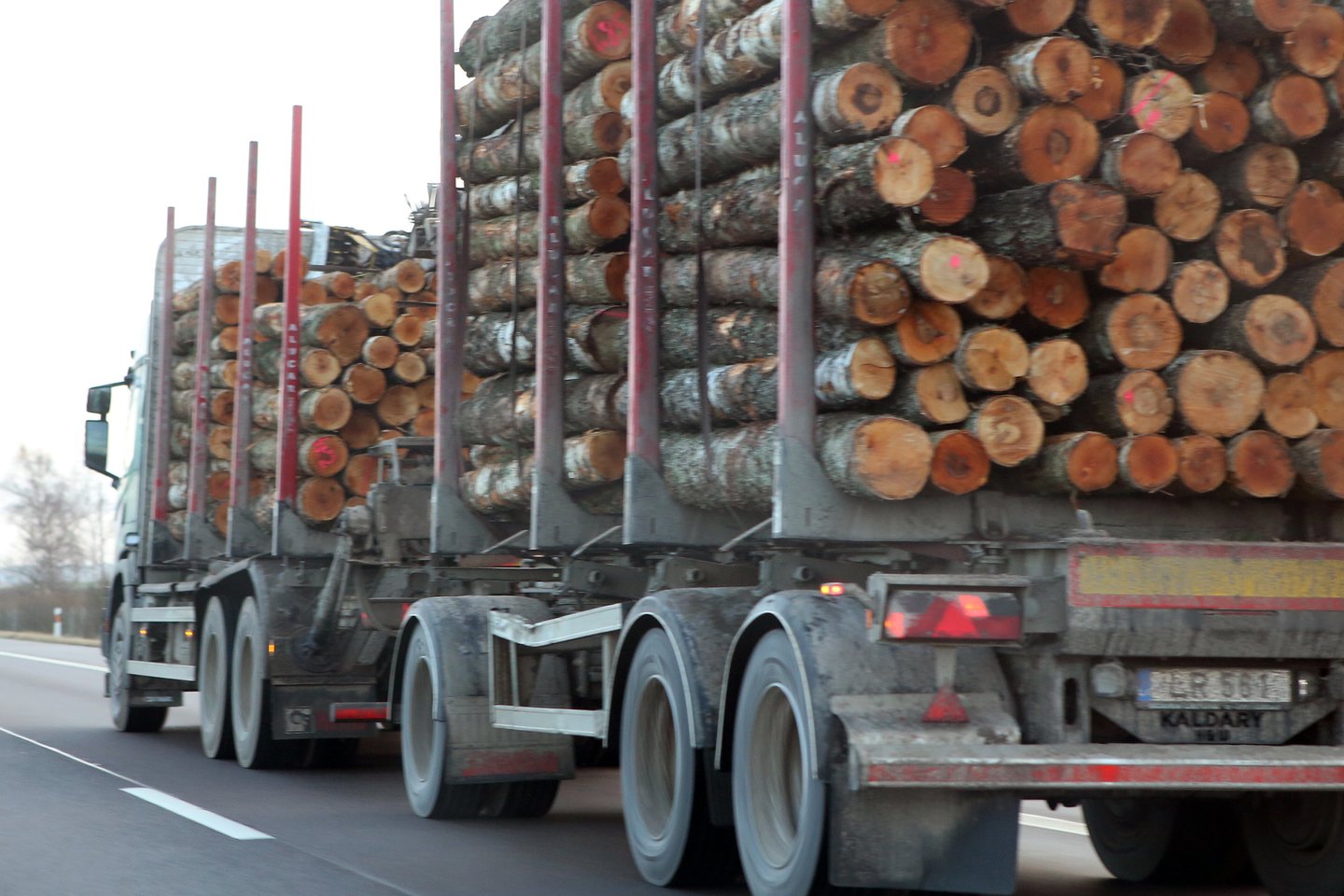Stanislovas Ivaškevičius, Head of the Belarusian Research Centre, says that Kazakhstan, a low-forested and timber-importing country, officially exports around €120 million worth of timber to the European Union (EU). He said this is most likely Belarusian timber, some of which crosses the border into Lithuania.
„We continue to see an intense increase in timber imports from Kazakhstan to the EU. We can say that some of the timber is Belarusian from the documents we have been lucky enough to obtain. Moreover, the entire supply is suspicious because Kazakhstan has a forest cover of only 4%, and the country imports timber. Half of the available forests are made of steppe wood, which is unsuitable for industrial processing,“ Ivaškevičius told LRT radio on Monday.
„Some of it goes to Lithuania. It ends up here because the wood is imported to Poland and exported around the EU. And Lithuania does not check its borders, which are not with Belarus. Smugglers come in through the back door,“ he added.
However, he mentions that this does not show the sanctions are ineffective, as Belarus exported €1 billion worth of timber before the sanctions.
According to the Head of the research centre, to circumvent the sanctions, it is no longer necessary to set up new shell companies but rather to forge documents using stolen signatures and stamps, which are pasted into the document using different programs.
„We are seeing new ways of circumventing sanctions. Now, it is enough to make documents and works at the Polish border. In Kazakhstan, timber is already entering with forged documents. When we analysed the documents we received, we saw that the signatures and stamps are identical, with pixels around the graphically pasted objects showing the alteration“, he commented.
„When the persons mentioned were called, one of them openly said that the timber had come from Belarus. The shipper from Kazakhstan assured that he knew the company, that he had been in contact with it and had signed a memorandum, but the company had disappeared, and the business had failed. We can imagine that all the company needed was a sample of this stamp,“ he added.
Ivaškevičius said that after informing the authorities in Lithuania and Poland, they replied that they would launch pre-trial investigations into the sanction’s evasion. However, he said, it is unlikely that such circumvention would have been prevented without the help of central EU institutions.
Poland's fines for such circumvention are too low
At the same time, Polish customs say they cannot physically inspect all cargo and do not consider such actions serious crimes, explains political analyst Martynas Malužinas. He says the fines imposed for such actions are often small, amounting to more than €100.
„At the moment, the Head of the Polish State Tax Inspectorate recently announced that after the entry into force of sanctions, timber from Russia and Belarus, as of 5 March 2022, about 100 shipments have been intercepted, where there are doubts about violation of sanctions. For half of them, evidence has been provided to open an investigation into the sanction’s notifications. And I think there will be information after the investigation. But the important fact is that Poland does not recognise this kind of timber shipment as a crime,“ he explained to LRT radio.
„Often the penalties imposed are symbolic, sometimes amounting to as little as 115–120 euros,“ he said.
He also mentioned that such circumvention of sanctions may be partly tolerated due to the Polish timber industry's crisis, which makes products less competitive.
In response, Jurgis Adomavičius, shareholder and founder of the customs broker Bunasta, believes that legal authorities should deal with the problems of circumventing sanctions and transporting goods from Poland to Lithuania. He believes that the blame for the circumvention lies with non-transparent companies, which is no longer the responsibility of functionally burdened customs officers.
„I would not throw stones at customs because customs is doing a big job and not its job, which may be hindering businesses. (...) This should not be addressed to customs but to the criminal services. I unequivocally believe that the guiltiest companies are not transparent“, – said Adomavičius.
„We hear here about the counterfeiting of stamps and documents. We are talking about real crime here, which should not be punishable by fines of €100,“ he said.
He also said that ensuring a transparent timber supply would be necessary to reduce some companies' willingness to circumvent sanctions.
„I would just concentrate on ensuring a transparent supply of building materials, how to ensure that these materials are sourced from the right countries,“ he said.


